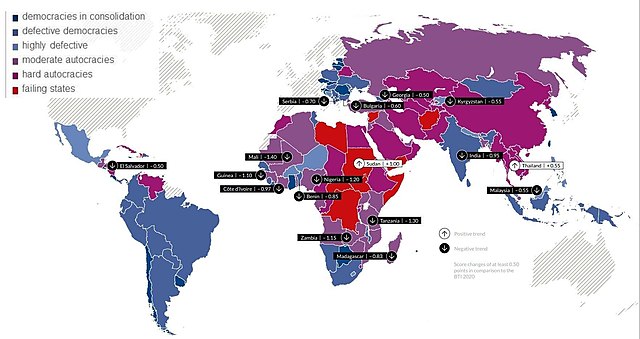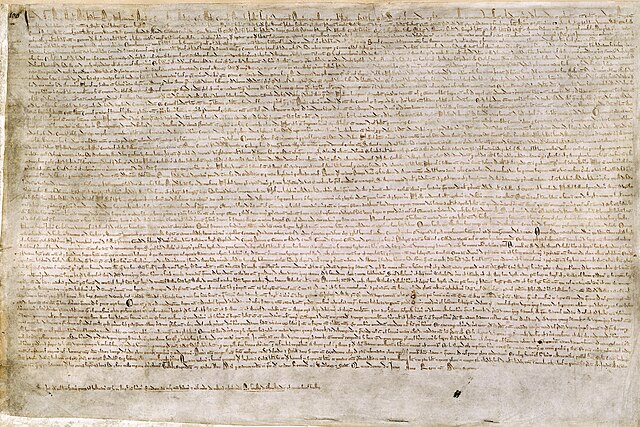Democratization, or democratisation, is the structural government transition from an authoritarian government to a more democratic political regime, including substantive political changes moving in a democratic direction.
Since 1900, the number of countries democratizing (yellow) has been higher than those autocratizing (blue), except in the late 1920s through 1940s and since 2010
Global trend report Bertelsmann Transformation Index 2022
Magna Carta in the British Library. The document was described as "the chief cause of Democracy in England".
Electoral ballot of the 1946 Italian institutional referendum
A democratic transition describes a phase in a countries political system as a result of an ongoing change from an authoritarian regime to a democratic one. The process is known as democratisation, political changes moving in a democratic direction. Democratization waves have been linked to sudden shifts in the distribution of power among the great powers, which created openings and incentives to introduce sweeping domestic reforms. Although transitional regimes experience more civil unrest, they may be considered stable in a transitional phase for decades at a time. Since the end of the Cold War transitional regimes have become the most common form of government. Scholarly analysis of the decorative nature of democratic institutions concludes that the opposite democratic backsliding (autocratization), a transition to authoritarianism is the most prevalent basis of modern hybrid regimes.

Since c. 2010, the number of countries autocratizing (blue) is higher than those democratizing (yellow).
Global trend report Bertelsmann Transformation Index 2022




